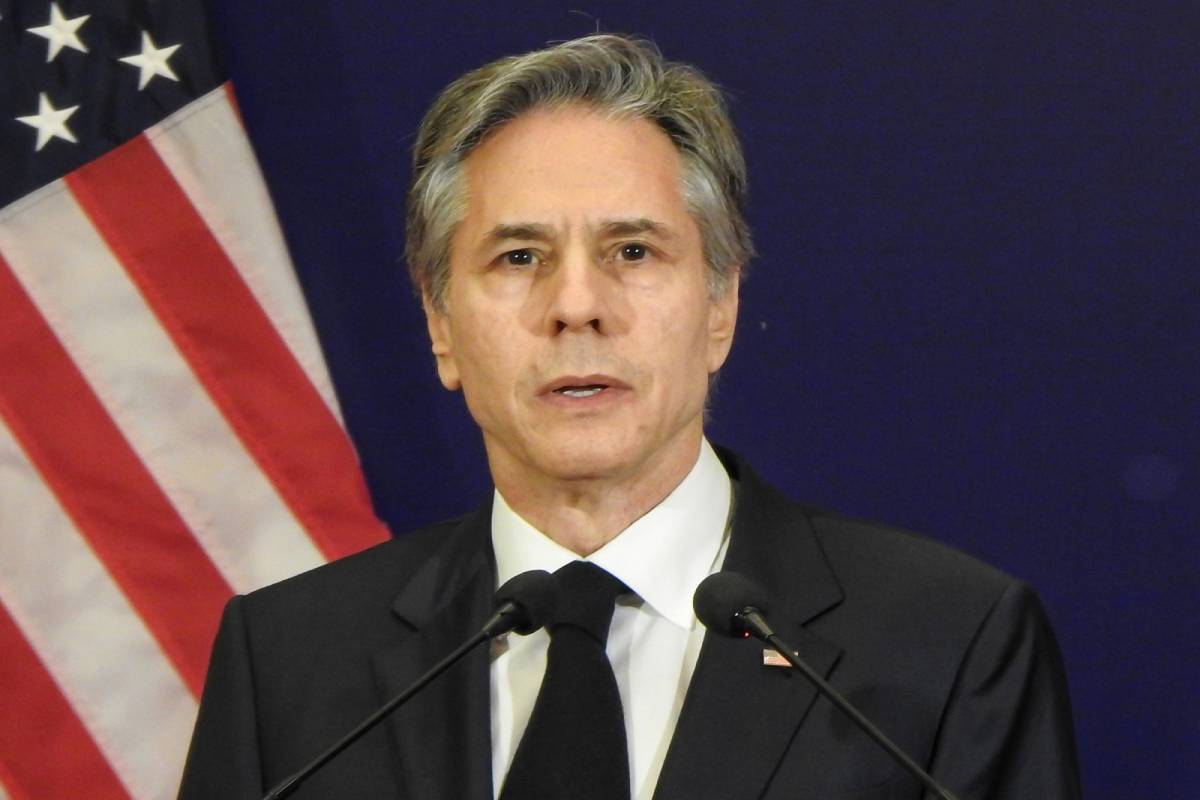US Secretary of State Antony Blinken’s last meeting with Israeli Prime Minister Benjamin Netanyahu was tense, according to Israeli media. So much so that the Israeli leader did not appear alongside America’s top diplomat for the customary news briefing.
Israel would not slow down the war in Gaza, allow displaced citizens to return to their homes in the north, and release funds for the Palestinian Authority, which were key demands Blinken had made to the Israeli.
He also had a message from leaders in the region that although they were unwilling to fund the reconstruction of the devastated parts of Gaza, they might be more willing to do it there was concrete movement towards the establishment of a Palestinian state.
Netanyahu has only allowed a UN team to visit Gaza to assess the damage.
Secretary Blinken has been to the region four times since the October 7 terrorist attacks by Hamas in Israel. But they might have been his most ambitious.
He started by visiting Turkey last Friday and then made his way to Greece, Jordan, Qatar, the United Arab Emirates, and Saudi Arabia. He then came to Israel for a day and went on to visit the Palestinian Authority and left for home from Cairo.
Wrapping up his 10-nation tour, Blinken told reporters on Thursday, his key objectives were to prevent the conflict from spreading; get more more humanitarian assistance in to people who need it; increase protection for civilians; get hostages out; and, finally, continuing to support Israel in its efforts to make sure that October 7 can never happen again, and so that this conflict can end. He did not score himself on these objectives.
But he did note that what made this tour different from the previous three was the marked willingness to discuss day-after-the-conflict issues and long-term, enduring security. There was a reluctance to talk about these things earlier. “Now we’re finding that our partners are very focused on that and wanting to engage on those questions.”
Most of these partners, not all. The exception was Israel, which remains focussed on ridding Gaza of Hamas. Netanyahu and his government remain opposed to an independent Palestinian state and the Prime Minister had, in fact, bolstered Hamas in Gaza to keep the Palestinian Authority in West Bank weak.
US officials informed reporters that Blinken had carried a message from Saudi Arabia to Netanyahu that it remained open to normalising ties with Israel if the latter agreed to a Palestinian state. But the Secretary did not get a strong response from Netanyahu, these officials said, according to The New York Times. Israel had not responded yet.
The Secretary of State’s grand vision is a non-starter for now.
But patience with Netanyahu is running thin in Washington DC. “Israel’s security can rest on the United States, but right now it has more than the United States. It has the European Union, it has Europe, it has most of the world … But they’re starting to lose that support by indiscriminate bombing that takes place,” Biden said to a group of donors in December.
During a political event this past Monday, the President said, in response to protestors who were calling for a ceasefire in Gaza, “I’ve been quietly working with the Israeli government to get them to reduce and significantly get out of Gaza. I’ve been using all that I can to do that.”
Biden has been steadfast in supporting Israel in this conflict with Hamas and has been supportive with words, diplomatic cover and aid, but the question is how long will he be denied, specially at the risk of further alienating large sections of the Democrat party and voters, specially Arab Americans, who have threatened to not vote for him in November, when he will be up for re-election.





